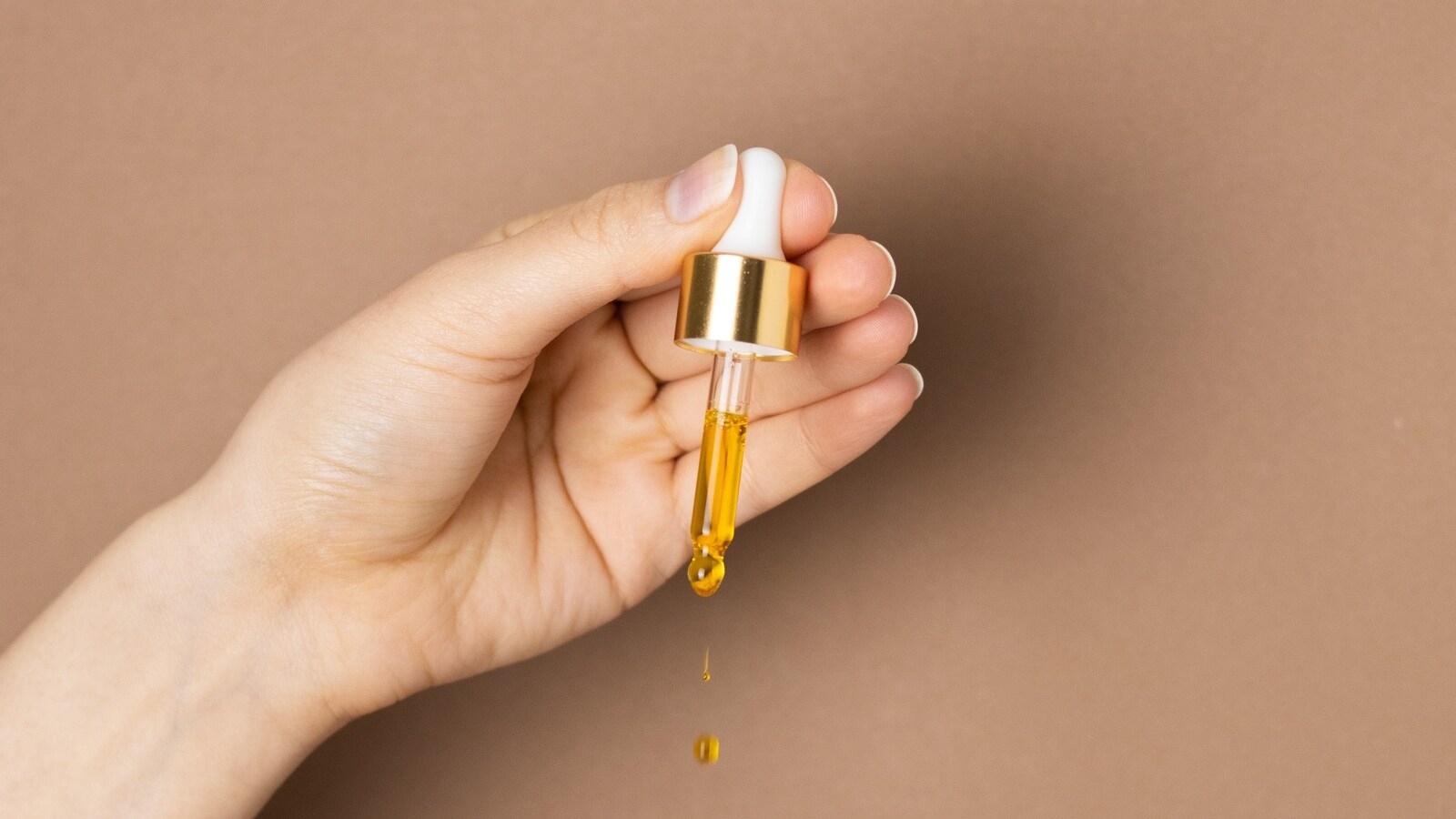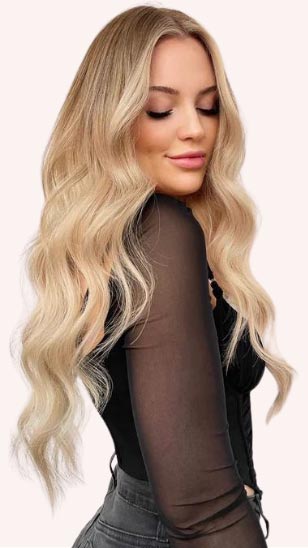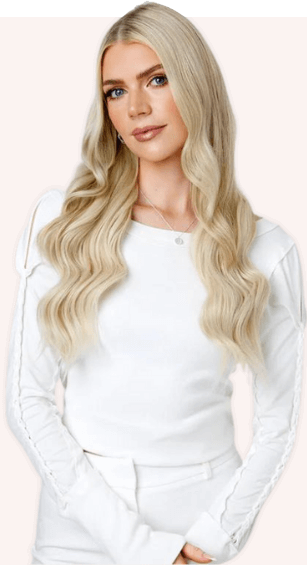Welcome to “Beauty Unveiled”, where we explore the depths of beauty beyond the surface. Today, we embark on a journey to unravel the mystique surrounding one of the most coveted aspects of hair care – virgin hair. In a world inundated with hair extensions, wigs, and various treatments, the concept of virgin hair stands as a beacon of purity and authenticity. But what exactly is virgin hair? Join us as we delve into its definition, its significance in the beauty industry, and the allure it holds for hair enthusiasts worldwide.
I. How Has The Definition of Virgin Hair Been Conceived?
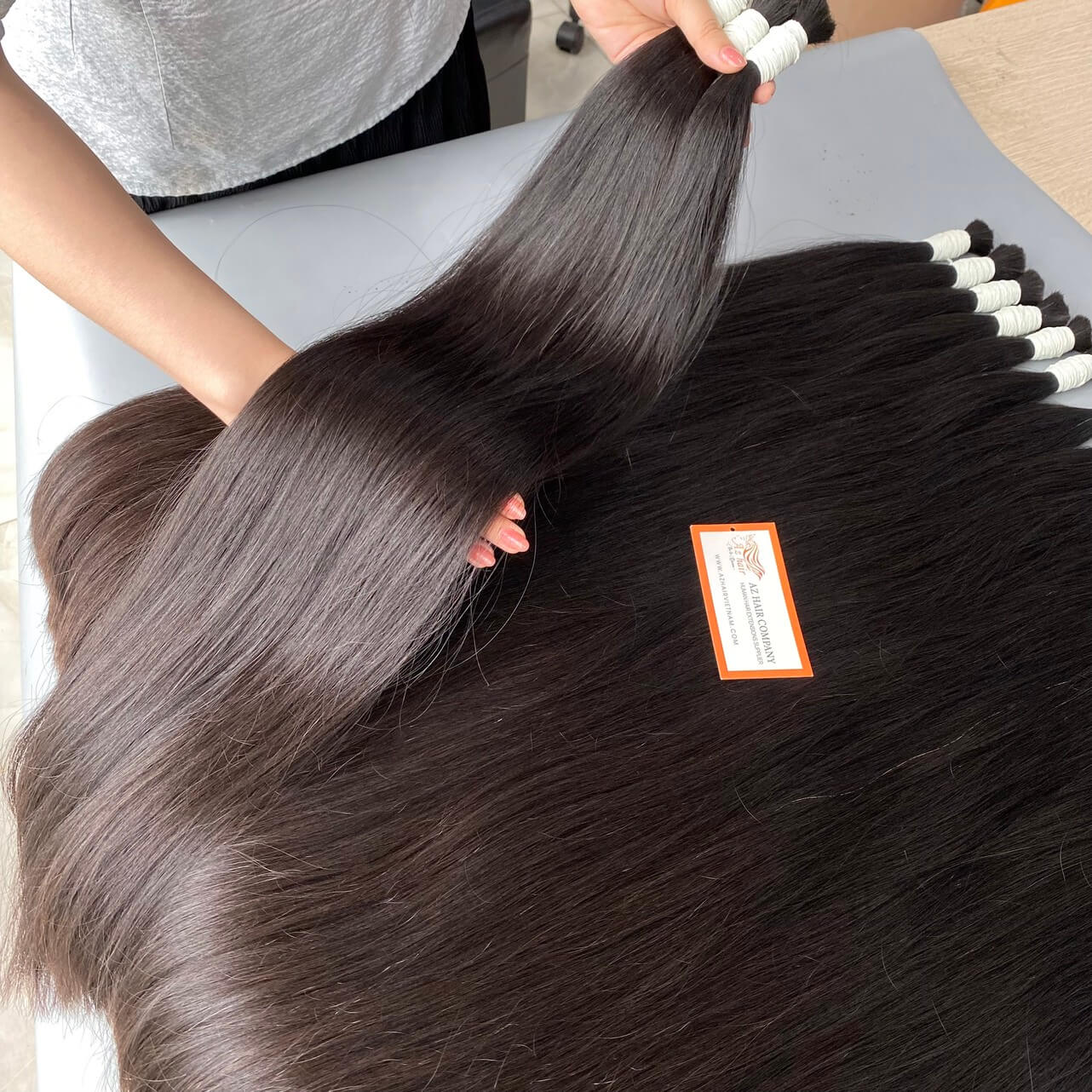
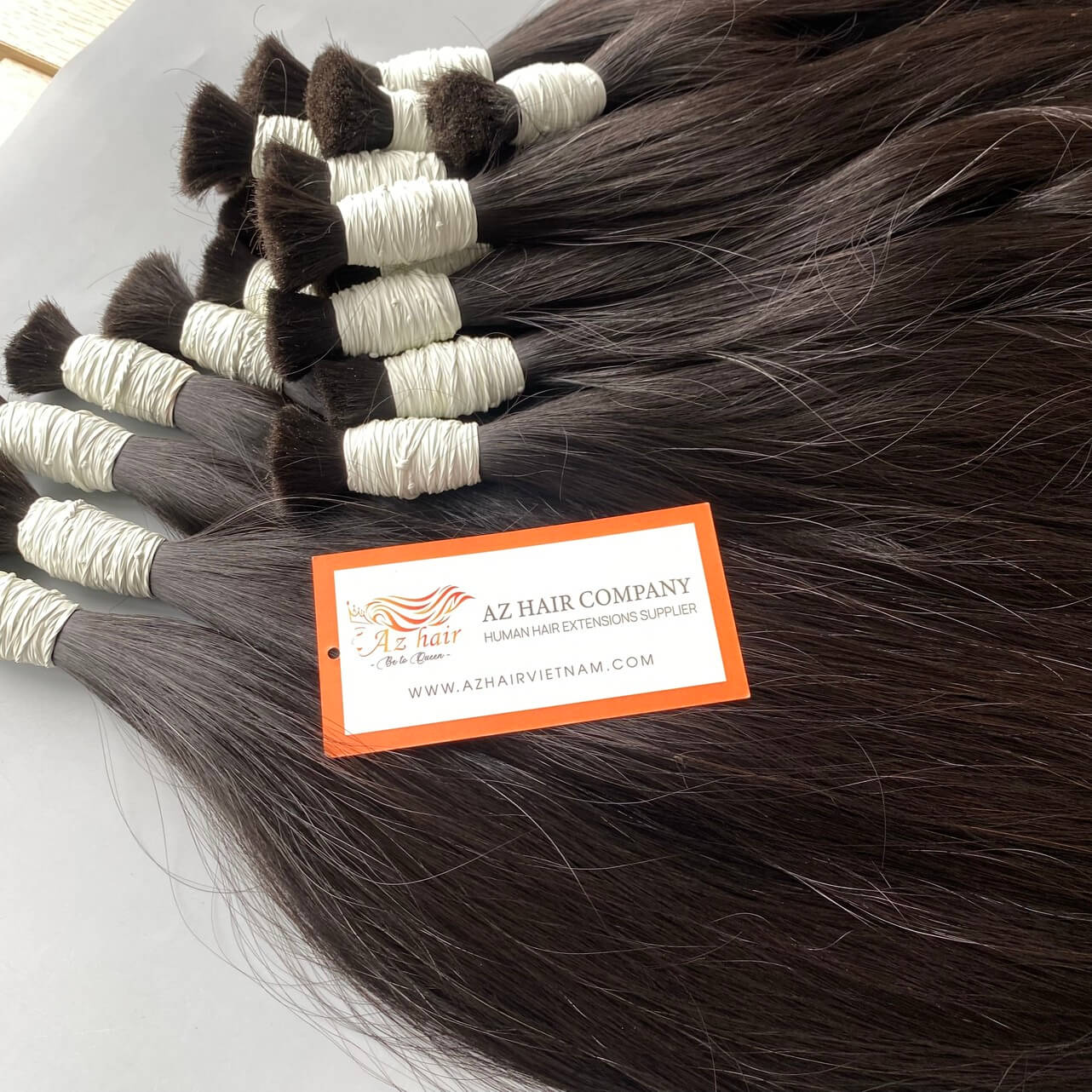
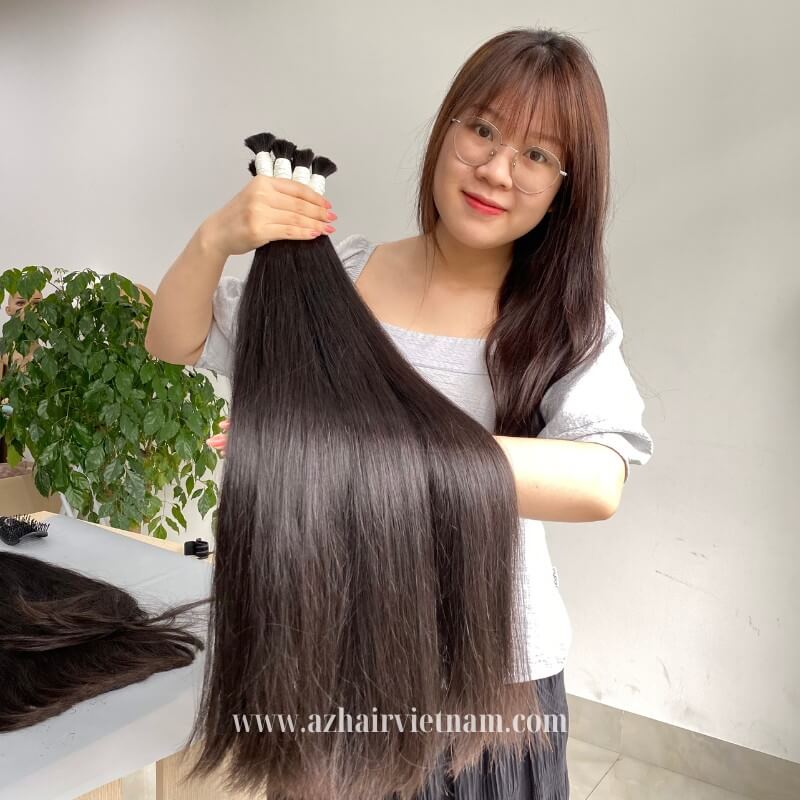
Virgin hair refers to human hair that has never been chemically processed in any way, including dyeing, bleaching, perming, or straightening. It is hair in its purest and most natural state, typically collected from donors who have not subjected their hair to any damaging processes. Virgin hair is highly valued in the beauty industry because it tends to be healthier, stronger, and more resilient compared to hair that has undergone chemical treatments. It can be used for various hair extensions, wigs, and other styling purposes. Wanna find out more about the difference between Chemically-treated hair and virgin hair? read now our dedicated blog: Chemically-treated Hair vs. Virgin Hair: Which One Is Better?
II. Why Has Virgin Hair Become Widely Recognized in The Realm of Hair Extensions?
These term has become widely recognized in the realm of hair extensions. This hair is highly sought after for use in hair extensions, wigs, and weaves because of its exceptional quality and authenticity.
- Natural Quality: Virgin hair refers to hair that has never been chemically processed, dyed, bleached, or undergone any other treatment. This means it retains its natural texture, strength, and shine, providing a high-quality and authentic look when used for extensions.
- Durability: Because it has not been subjected to chemical treatments or excessive heat styling, it tends to be more durable and long-lasting than processed hair. This durability makes it an attractive option for those seeking extensions that will maintain their appearance over time.
- Versatility: Virgin hair can be styled, dyed, and treated just like natural hair because it essentially is natural hair. This versatility allows individuals to customize their extensions to match their desired look, whether they prefer straight, wavy, or curly styles.
→ Overall, the natural qualities, durability, versatility, and ethical considerations associated with virgin hair have led to its widespread recognition and popularity in the realm of hair extensions.
MAYBE YOU ALSO WANNA READ: Why is Virgin Hair The Best Choice For Hair Extensions and Wigs?
III. How To Tell Whether Your Hair Extensions is Virgin Hair?
Almost every hair company boasts of offering this hair, but without the right knowledge, you could easily fall prey to scams, resulting in substantial financial loss and less-than-desirable hair outcomes. Now let’s see the ways to determine whether your hair is virgin or not!
1. How To Tell If Your Hair Is Virgin - Wash Test
A wash test is the simplest way that you can use to test whether your hair is virgin. This is a good test to perform on your hair because not only does it show if your hair has been chemically processed or dyed, but it will also show the natural texture of your hair extensions.
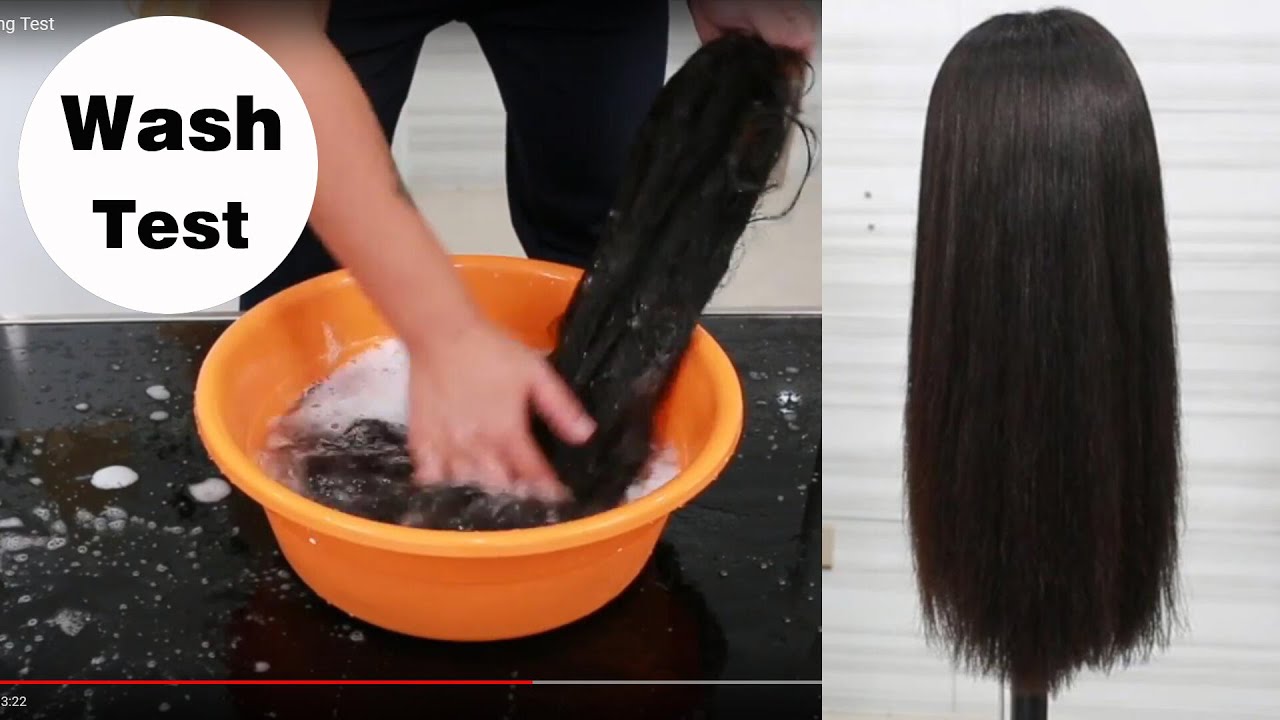
Begin by wetting the hair bundle, placing a small amount of neutralizing shampoo, and then massage it into the hair. When washing your hair, watch out for any variations in the color that run off your hair. This hair shouldn’t have any chemical processing outside of water and heat (steam-processed hair is considered unprocessed). So if the water changes color, or if you notice that the shampoo causes the foam to turn pink, it could indicate that your hair has been chemically processed or dyed prior to you receiving it.
2. Examine the Hair for the Presence of Hair Cuticles
Cuz this hair has not been chemically processed, so it should have hair cuticles. Try the hair cuticle feel test. To feel for the hair cuticle, run your fingers throughout the hair shaft. The strand of hair should have a smooth feel that is going downwards towards the direction of hair growth. On the other hand, you should feel a bit of resistance when you move your fingers in the opposite direction. If you do feel resistance, then it means that a non-stripped cuticle is there.
IV. Your Virgin Hair Care Routine
There are endless hair color trends and techniques, as well as chemical treatments such as keratin treatments. Nevertheless, if you still cherish your virgin and untouched strands and wish to preserve them, chances are your hair is exceptionally healthy and beautiful. This holds true as long as you maintain a steadfast hair care routine. Here’s a straightforward, three-step routine to experiment with.
Step #1: Wash Regularly
The first step in any hair care routine is, of course, to shampoo and condition your strands regularly. If you have virgin hair, look for a shampoo and conditioner system that’s formulated to be gentle on your strands and address any hair concerns you naturally face. Remember to shower your hair with lukewarm water, lukewarm water is best to prevent its natural oils from being stripped away. You can find out more about the hair products for hair extensions in our dedicated blog: The Best Shampoo And Conditioner For Hair Extensions.
Step #2: Use Deep Conditioner
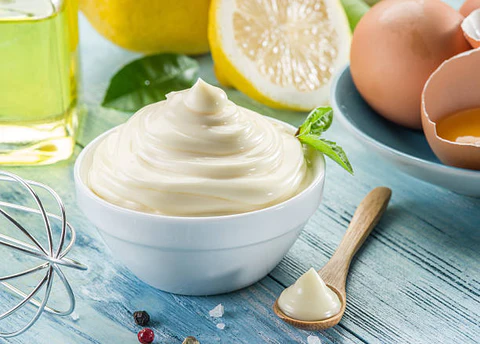
We often tout the importance of using a weekly or bi-weekly deep conditioning treatment when you have colored strands, but they can be equally beneficial for virgin hair. It’s easier and quicker to use than you might think – just leave the conditioner on for one minute, rinse out, and go about the rest of your hair routine as usual. This way, the product has more time to do its thing on your strands. If you don’t want to use already-made products, you can find more recipes in our dedicated blog: 15+ DIY Deep Conditioners to Try For Your Hair Extensions.
Step #3: Use A Leave-In Treatment
V. Conclusion
In conclusion, the exploration of virgin hair reveals not only a fascinating aspect of the beauty industry but also a deeper appreciation for the authenticity and purity it represents. Virgin hair isn’t merely a product; it’s a symbol of integrity, untouched by chemical processes or artificial enhancements.


 BEST SELLING PRODUCTS
BEST SELLING PRODUCTS Wig Hair
Wig Hair WHOLESALE
WHOLESALE Contact us
Contact us Sale Events
Sale Events